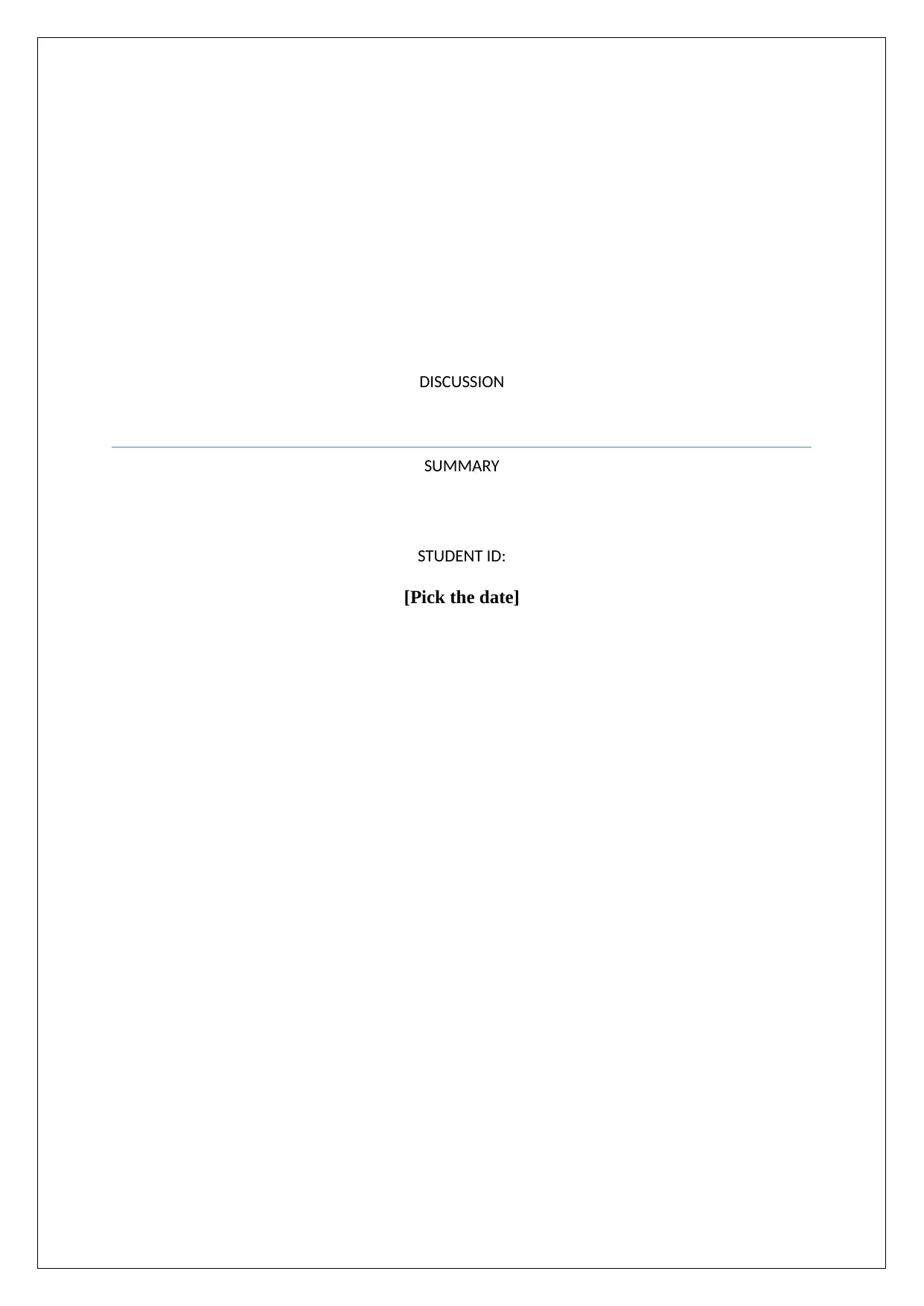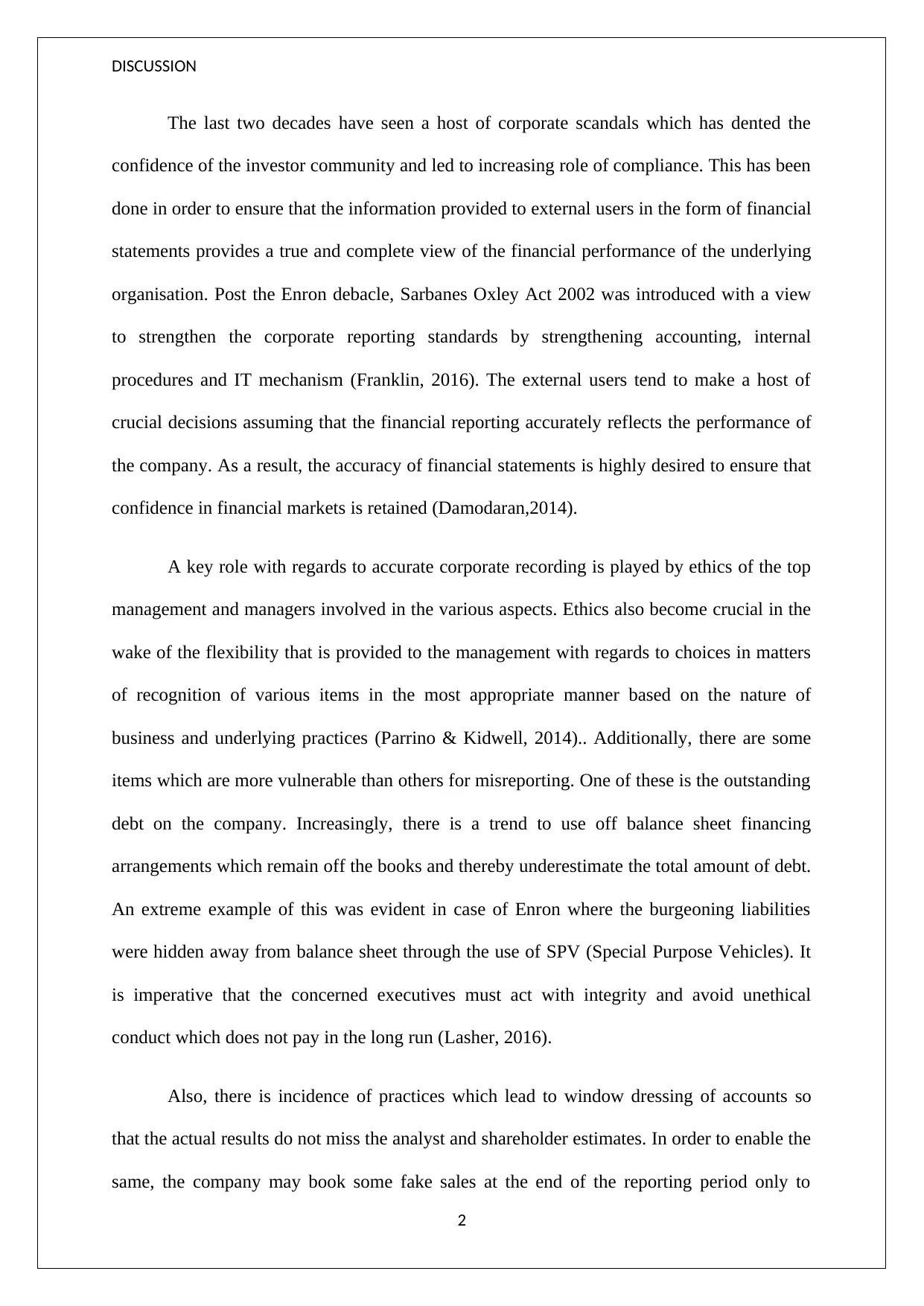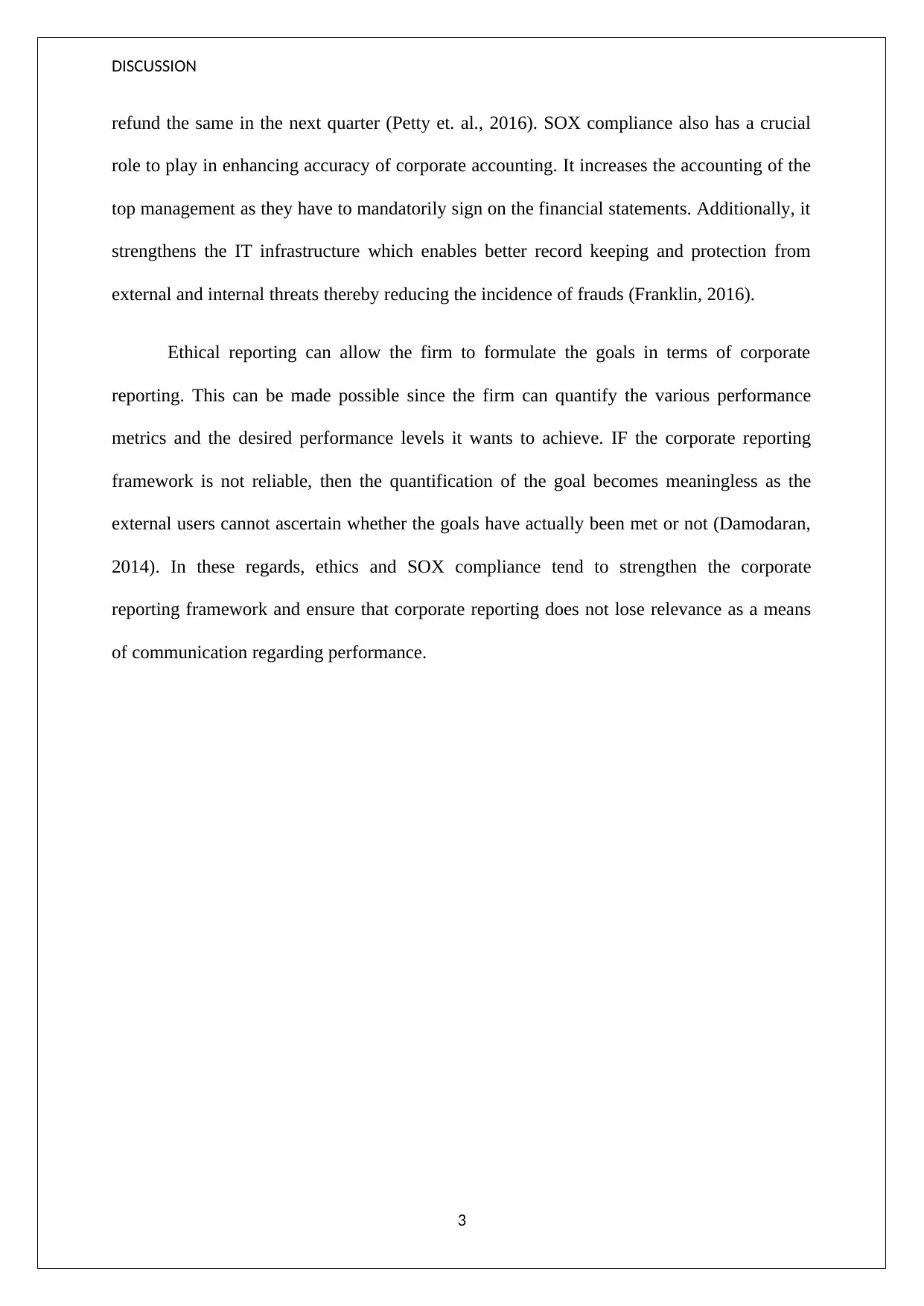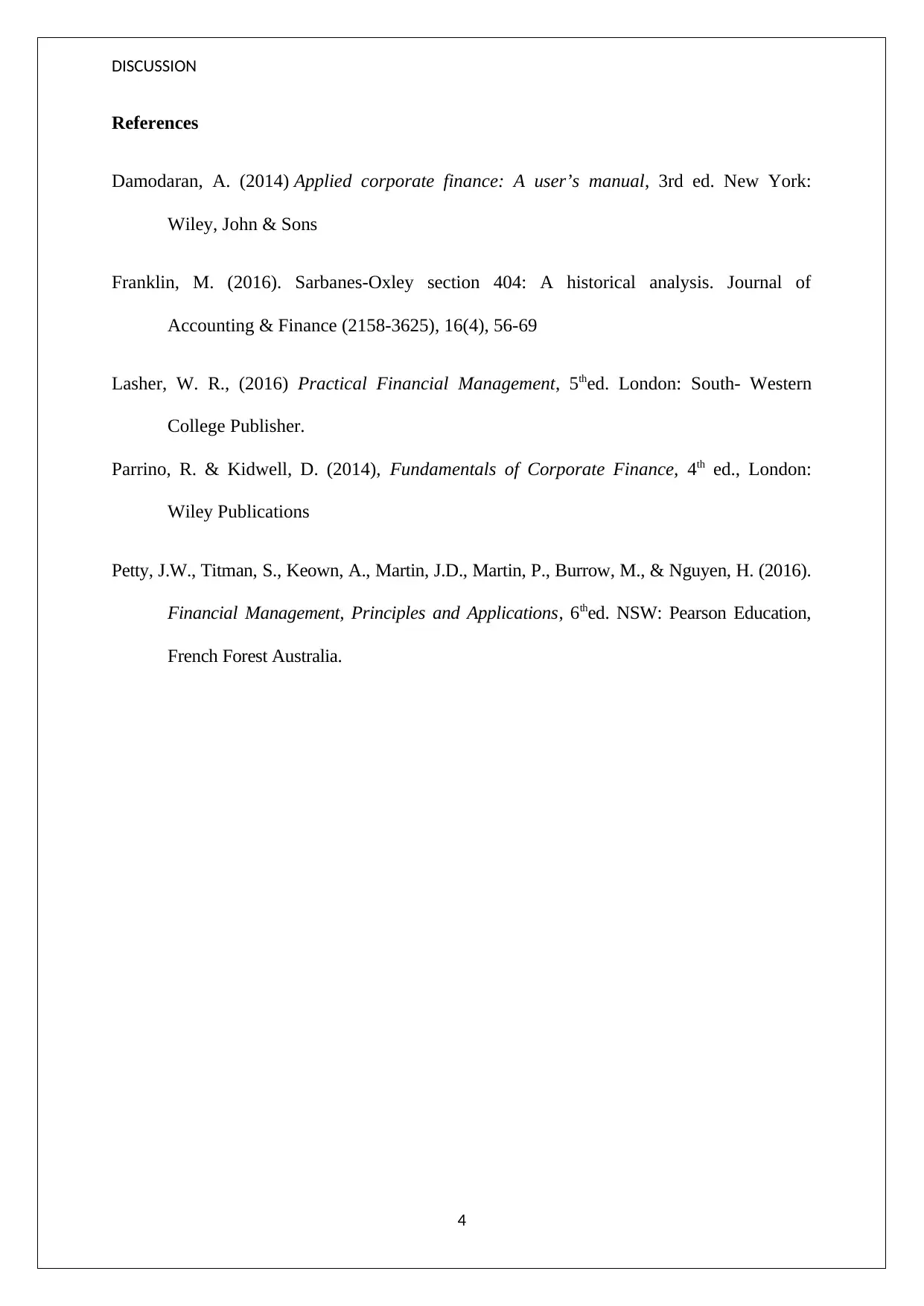Corporate Reporting, Ethics, SOX Compliance, and Financial Integrity
VerifiedAdded on 2022/09/28
|4
|745
|29
Discussion Board Post
AI Summary
This discussion post examines the critical role of ethical corporate reporting in maintaining investor confidence and financial market integrity. It highlights the impact of corporate scandals, like Enron, in driving the need for enhanced compliance, such as the Sarbanes-Oxley Act of 2002 (SOX). The post emphasizes the importance of ethical conduct by top management and the accurate presentation of financial statements, especially concerning sensitive areas like debt reporting and the avoidance of practices like window dressing. It explains how SOX compliance strengthens financial reporting through improved IT infrastructure and the accountability of top management. The post concludes by asserting that ethical reporting and SOX compliance are essential for ensuring the reliability of corporate reporting as a means of communicating performance and maintaining the relevance of financial data for stakeholders. The post also references several key academic sources to support its arguments.
1 out of 4










![[object Object]](/_next/static/media/star-bottom.7253800d.svg)